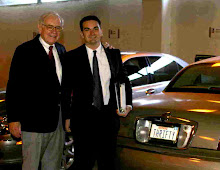My take on the Burger King IPO
I have no doubt Burger King is a good company. It has enormous brand equity, the second largest market share among burger joints, and, I feel, a pretty flipping good product. Pun intended. But the new company, the one that now trades shares on the NYSE, has been stripped down to pad the wallets of the consortium of private equity folks that took it private in 2002. Not to mention a CEO that just split and a struggling burger market.
The biggest red flag, or should I say “proof”, that this proposition is a loser for individuals is the $367 million dividend the owners paid themselves, financed by $350 million in debt, immediately before the IPO. This could be justified if it is true that the consortium contributed a like amount of equity themselves since the buyout, but what it leaves is a dangerously overleveraged firm in an unfavorable market.
I say unfavorable because burgers seem to be losing popularity in favor of other foods such as subs (Subway) and tacos (Taco Bell). Such was the momentum behind the overwhelmingly successful IPO of the legitimately stellar business Chipotle. Given that Chipotle had whetted appetites of investors for big fast food IPOs, this was a logical time for the consortium to cash out.
So lets review. The Burger King owners take out a $350 million loan and pay themselves roughly a $350 million dividend, then take the company public to raise $350 million in equity capital, which they purport to use to repay the loan. Translation: $350 in, then out, then back in, then back out. So absolutely no value has been added to the firm through this offering, it has all gone to the original owners. The icing on the cake for them is that they emerge from this with the 75% of the company that was not sold in the IPO.
The right reason to take a firm public is to raise capital. Good firms can usually do this rather inexpensively. The wrong reason to take a firm public is to cash out, or sometimes pawn-off, a mediocre business on to the unsuspecting public.


0 Comments:
Post a Comment
<< Home